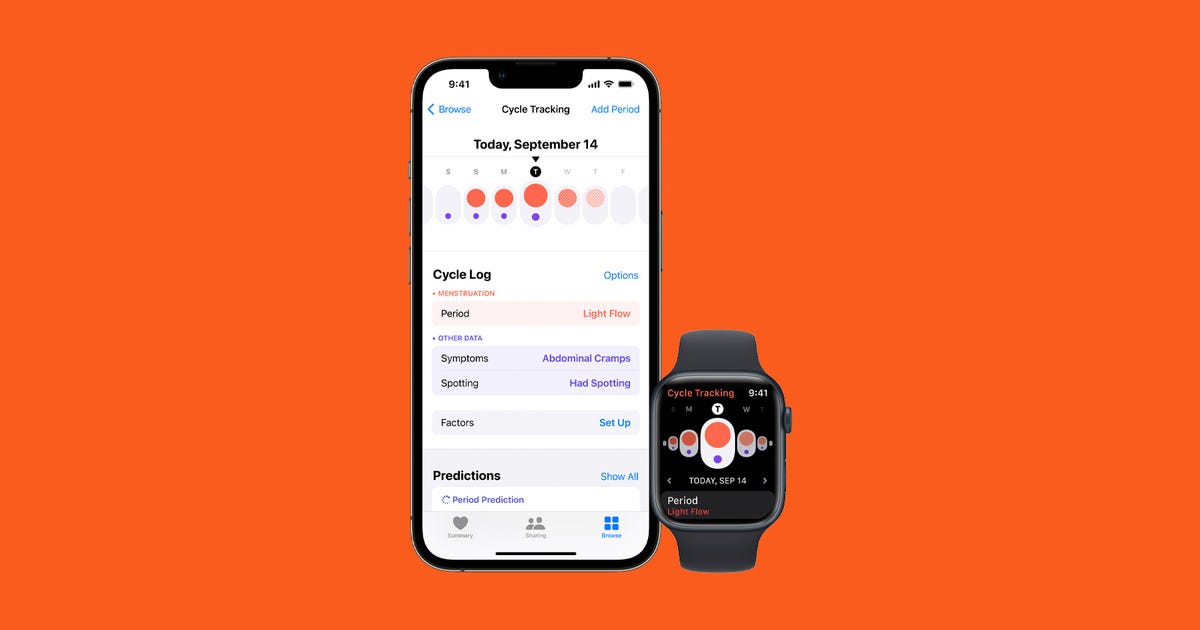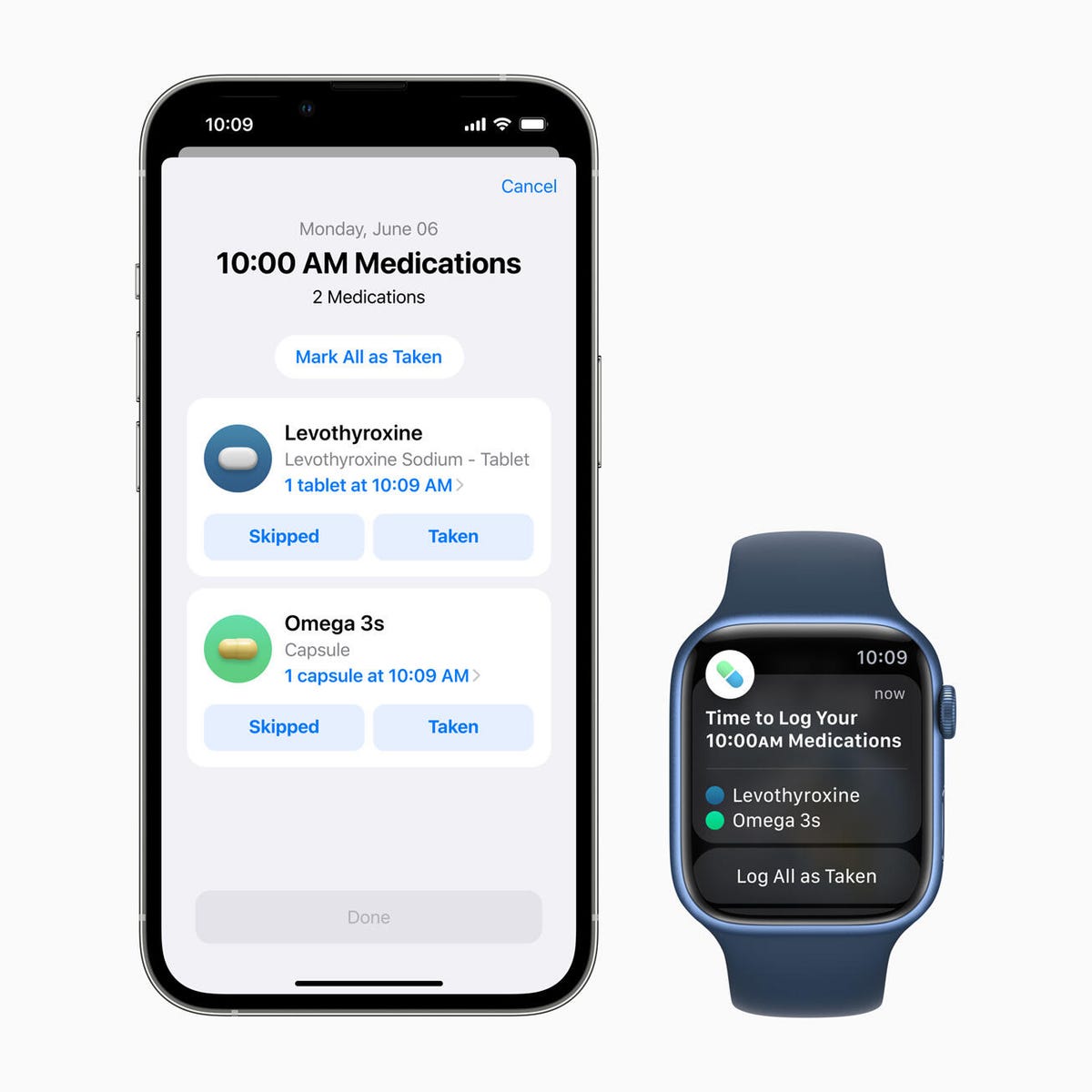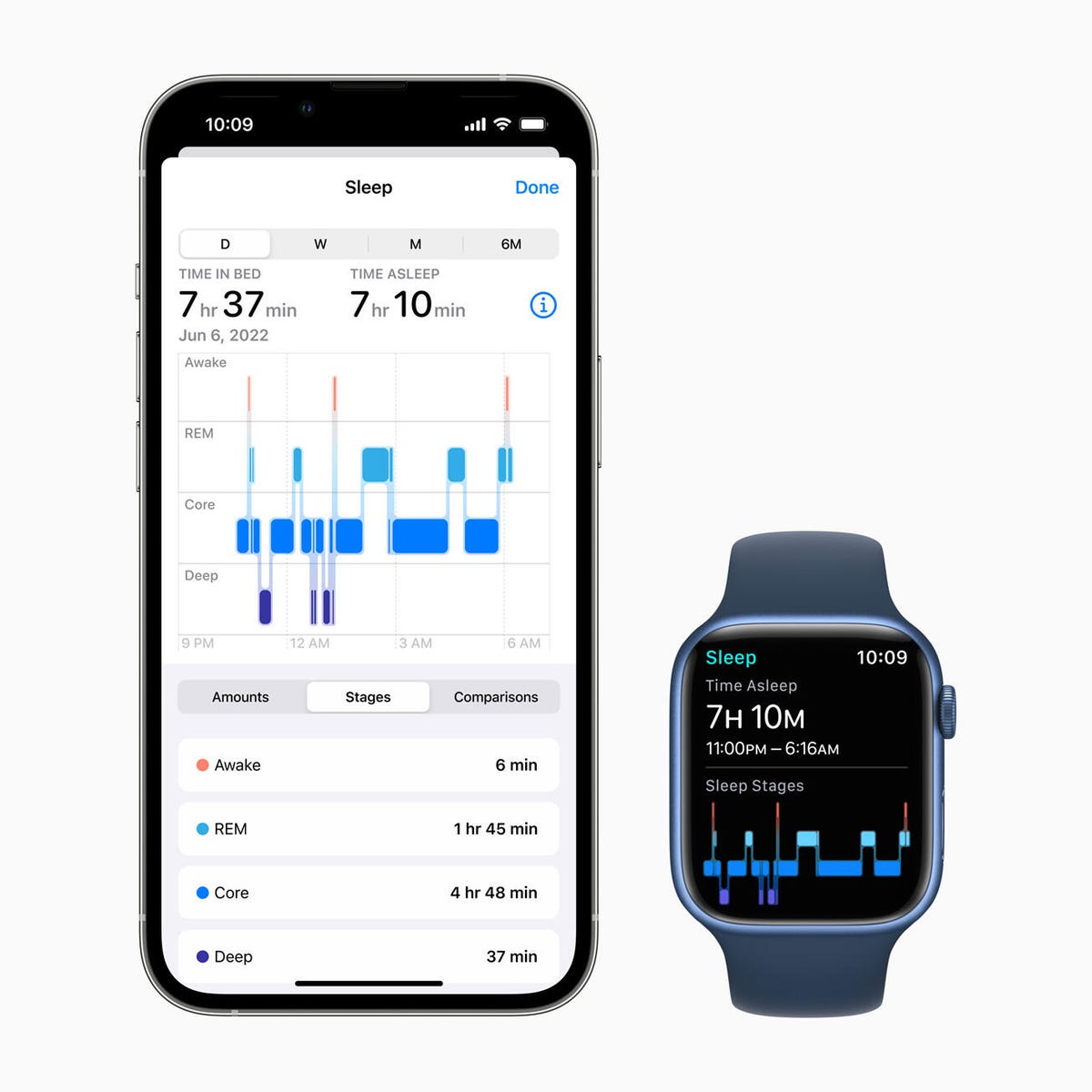
What the Future of Health Looks Like for Apple
Apple's Health app keeps evolving, with aspirations to be a complete combination personal data archive, medical liaison and insight engine. But the goals, while ambitious, aren't fully realized yet. iOS 16 and WatchOS 9 are adding medication management and multistage sleep tracking to a growing list of features. But what comes next, and will it start to become a tool that interfaces with doctors even more than it has?
Apple just published a multipage health report (PDF), which aims to detail where the company sees its health focus heading on the iPhone and the Apple Watch. The report covers the app, research studies and initiatives with medical organizations.
As Google prepares to release a Pixel Watch that will connect to Fitbit's features and services, Apple looks to be strengthening its position by expanding beyond the watch to a larger spectrum of health services. Already, Apple Health and Fitness Plus are evolving into services you don't need an Apple Watch to use.
When will Health start to become an extension of how I connect with my own doctors? Will sleep tracking offer a doorway to other health insights? And why doesn't Apple have its own equivalent of the "readiness score" used by Fitbit and Oura?
Apple's vice president of health, Dr. Sumbul Desai, spoke with CNET about the goals of Apple Health and where goals are being set next. She sees the blend of lifestyle with clinical data, medication data and an increasing number of metrics in one place as helping future insights in other health measurements over time.
"You have to do it in a really thoughtful and meaningful way," Desai said. "Because there are also correlations you can make that are incorrect. That's where the work is, making sure that when you make those connections that they are correct, grounded in the science and make sense to the user."

Medication tracking on iOS 16 looks like another step to bring medical histories onto Health.
AppleWhere does Apple Health meet your doctor?
As I've found over the last few months, over several surgeries and doctor visits, my own medical care doesn't often connect with my wearable and phone apps. Apple's been aiming to make strides to connect Apple Health with medical providers, but the framework isn't fully there yet for digital health platforms. A lot of Apple's promised benefits are in identifying long-term data patterns and insights.
"I do think how they interact with each other is really important," said Desai, who points to the new tracking of atrial fibrillation patterns over time in Watch OS 9. "We are actually taking how much time you're in AFib and correlating it to your lifestyle. How much you're sleeping. How much you're moving, you'll see the changes in AFib. If you're using Mindful Minutes, do you see a change."
Apple has tried making data sharing easier with doctors, but right now it still doesn't go far enough. At the medical group where I'm a patient, for instance, there's no obvious way to share the data I'm collecting in Apple Health through the patient portal.

Sleep tracking is gaining sleep stages in WatchOS 9. Will that bring a wave of other health insights down the road?
AppleSleep as the next frontier?
Apple's addition of sleep stage-based sleep tracking in the upcoming Watch OS 9 looks to close the gap on other fitness trackers like those from Fitbit, Samsung and Oura. Apple's been pulling new features for the Apple Watch from work in some of the company's ongoing heart research studies, and sleep could end up being a place that evolves next.
"What I'm really excited to learn from a scientific standpoint is, does the amount of sleep that you're getting in certain stages, like core [replenishing sleep], does that actually translate to benefit during the day when you're moving?" Desai said. "Are there certain phenotypes of certain people who have more benefit versus others? There's so much to tackle from a research standpoint there. We would never put anything out until we knew we kind of had some scientific grounding. The whole causation-correlation thing can get very tricky."
Desai suggested future research combining sleep stage data with Apple's ongoing heart and move data from its ongoing study will possibly provide more insights, "but we're still a ways away from that."
Could Apple ever develop its own readiness score?
One thing Apple's evolving and elaborate set of Health insights currently doesn't have is any sort of attempt at a distilled score, or personal health rating. Fitbit, Oura, and a number of other wearables have daily personal scores derived from a variety of individual metrics. I asked Desai whether Apple might pursue a similar idea anytime soon. While it sounds like a direction Apple Health could head in, it also seems like Apple is still trying to lock down the best path to get there.
"It's a really good question. I think the answer is, to be honest, is we don't have a firm POV yet," Desai said. "We want to understand the science behind that, and what can we understand and glean from a scientific standpoint."
Desai suggests that the health measurements, and their meanings, can vary. "HRV [heart rate variability] is a great metric. I'm super fascinated by HRV. But HRV can be changed based on multiple reasons." She suggested that Apple's eventual evolution of its insights will need to come with clear guidance, too.
"I think for us, we want to be able to provide actionable information. So to understand to do that, you actually have to be able to draw it back to, what we think is actually causing that? We are really trying to understand the science behind all of these different metrics and focus on how we provide insights that we know we can back up."
On whether Apple Health could come to other non-Apple devices
Apple's aiming for Health to be a comprehensive, secure system for anyone to use, but it still flows through Apple hardware, which means a portion of the population will always be left out. I asked Desai whether Apple Health might ever be available beyond iPhones.
"We're always looking at ways to support the ecosystem. We just want to make sure we can support that in a private and secure way. That's fundamentally what drives our decision making," Desai said. "We have a ton of things in the App Store ecosystem that are super interesting that people are doing, and we're very supportive of supporting that work.
"Honestly, we make a lot of decisions driven by privacy. And there's a lot of things we choose not to do and choose to do, based upon that."
The information contained in this article is for educational and informational purposes only and is not intended as health or medical advice. Always consult a physician or other qualified health provider regarding any questions you may have about a medical condition or health objectives.
Source
Tags:
- The Future Of Health Is You
- The Future Of Health Care
- Questions About The Future Of Healthcare
- How Is The Future Of Healthcare
- How The Future Looks
- The Future Of Health Is You
- What The Future Of Foo tball Will Look Like
- What Is The Future Of Work
- What The Future Looks Like
- What The Future Holds Part 2
- What The World Needs Now

